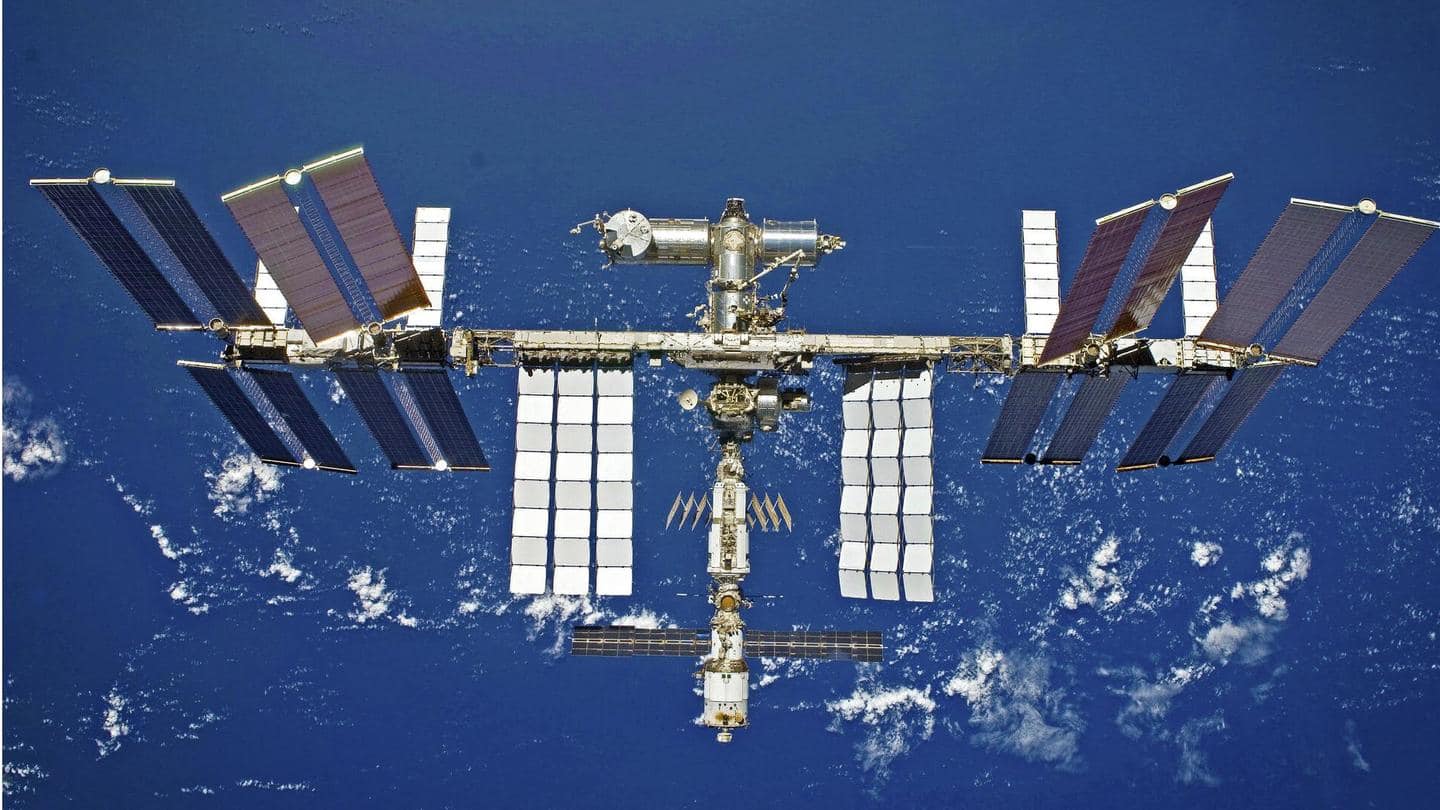
ISS veers off course due to Russian module's misfiring thrusters
What's the story
The International Space Station (ISS) is a space laboratory that's approximately as large as a football field. However, the uncontrolled firing of thrusters on the newly-docked Russian Nauka module caused the ISS to briefly shift out of orbit on Thursday.
A NASA spokesperson has confirmed that the spacecraft is now back under control and its seven-person crew including three US astronauts are safe.
Deviation
Hours after docking, Russian Nauka module's thrusters fired erroneously
NASA spokesperson Rob Navias said that the Russian Nauka module docked at the ISS at 12:25 PM Eastern Time. The module is a new 23-ton multipurpose laboratory.
Its thrusters began firing erroneously around three hours after it docked successfully.
The Verge reported that the ISS' deviation from its trajectory was first noticed by NASA's astronaut headquarters in Houston, Texas.
Heart-in-mouth
ISS suffered 'loss of altitudinal control' for over 45 minutes
The deviation automatically triggered an alarm for the astronauts on the space station. In a press conference on Thursday, NASA's ISS manager Joel Montalbano said that by 12:42 PM ET, the spacecraft had lost control of its positioning.
The "loss of altitudinal control" lasted for just over 45 minutes. Additionally, communication with the crew was lost briefly twice during the incident.
Tug of war
Zvezda module thrusters activated to counteract Nauka
Montalbano said that at its peak, the ISS was pitching out of alignment at a rate of half a degree per second. This was countered by firing the Zvezda service module's thrusters.
Russian state-owned news agency RIA reported that NASA specialists at the Johnson Space Center in Houston described the maneuver as a "tug of war" between the two modules.
Sigh of relief
There was no immediate danger to crew: NASA's ISS manager
NASA said that by 1:29 PM ET, the Nauka's engines were switched off. Subsequently, the ISS was stabilized and its orientation was restored.
Montalbano said, "There was no immediate danger at any time to the crew."
Russian space agency Roscosmos said that according to telemetry data and reports from the crew, the space station and the Nauka module are operating normally.
Ironic?
Nauka is named after the Russian word for science
Montalbano said that Roscosmos will lead the investigation into the cause of this incident.
This isn't the first issue Nauka faced. The spacecraft has been in development since 1995 and was originally scheduled to launch in 2007. Several design and functional changes deferred its launch.
Prior to launch, there were multiple 11th-hour issues with Nauka's guidance system.
Issues
After 26-year program, Moscow struggled to get Nauka into orbit
Thirteen minutes into its flight, Nauka successfully deployed its solar arrays. However, propulsion and communications issues withheld the spacecraft from entering its intended orbit.
Eventually, mission control in Moscow scrambled to use the spacecraft's secondary thrusters to prevent 26 years of research from falling out of orbit and burning up during re-entry into the Earth's atmosphere.
Got lucky
Space debris could've changed the narrative completely
Although the ISS escaped unscathed this time, such accidents can damage or obliterate spacecraft in the event of a collision with space debris that has been growing at an alarming rate.
This mishap forced NASA to postpone Boeing's Starliner capsule launch. The launch has been deferred from Friday at 2:53 PM ET to Tuesday, August 3 at 1:20 PM ET.